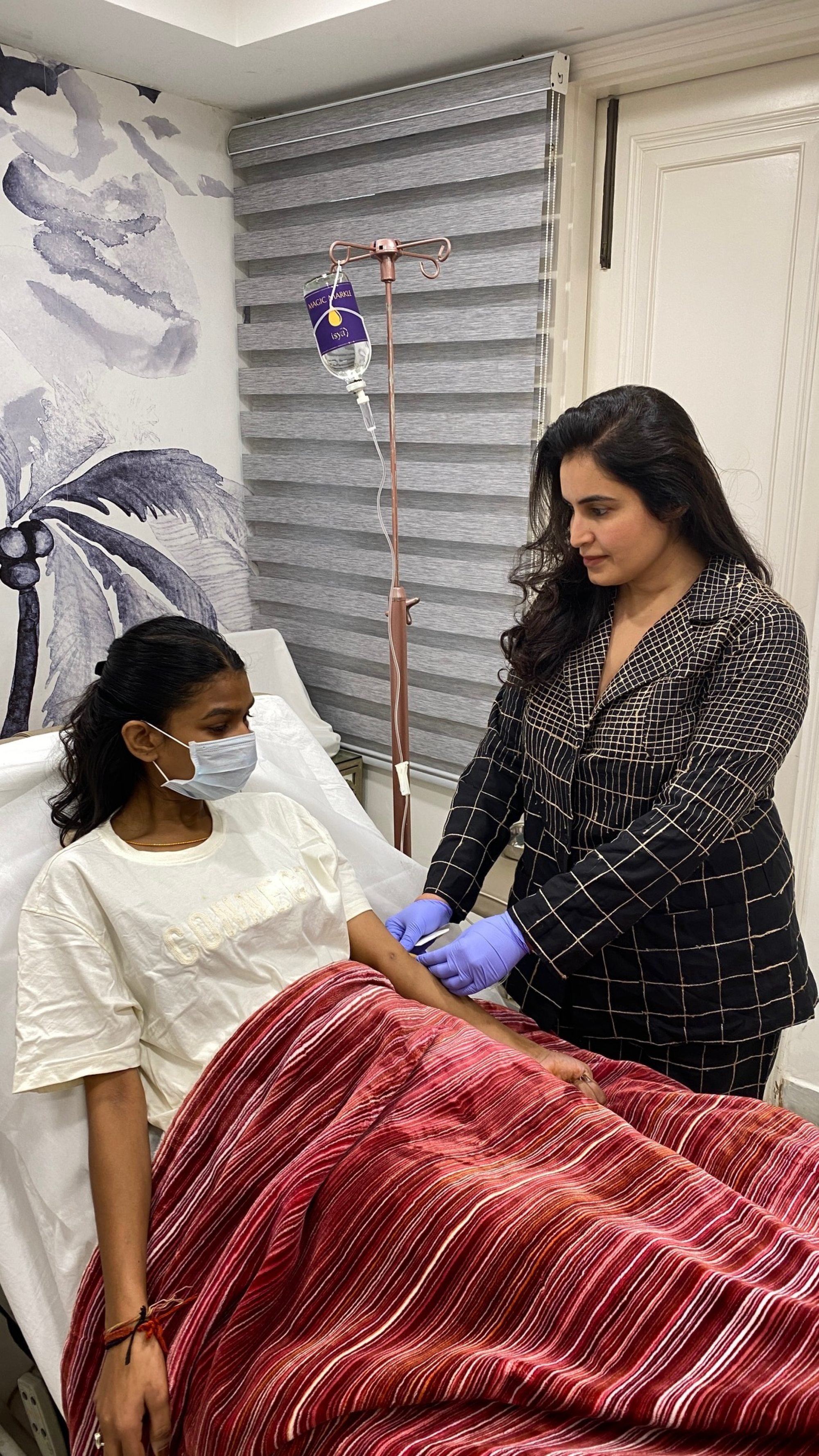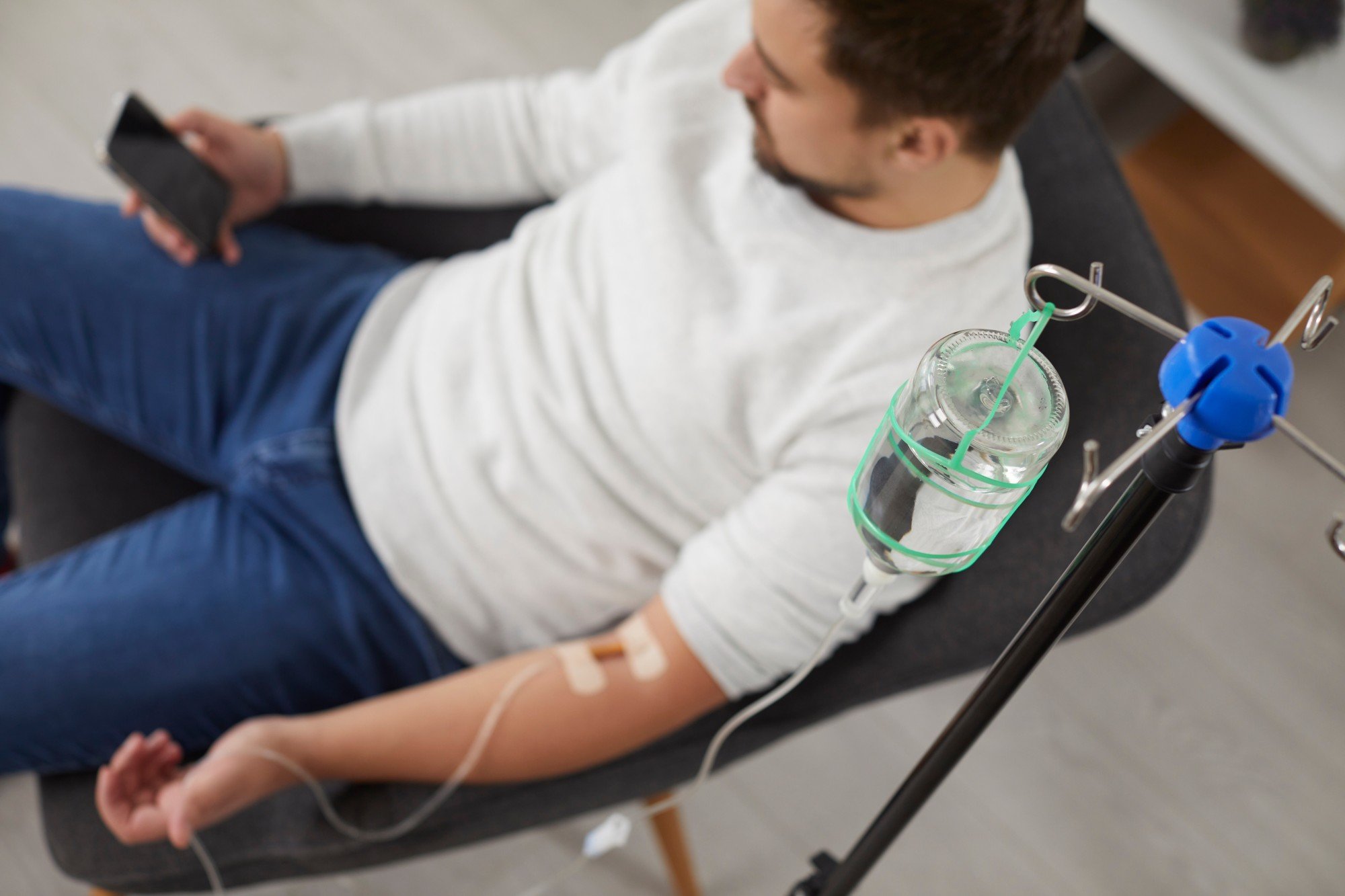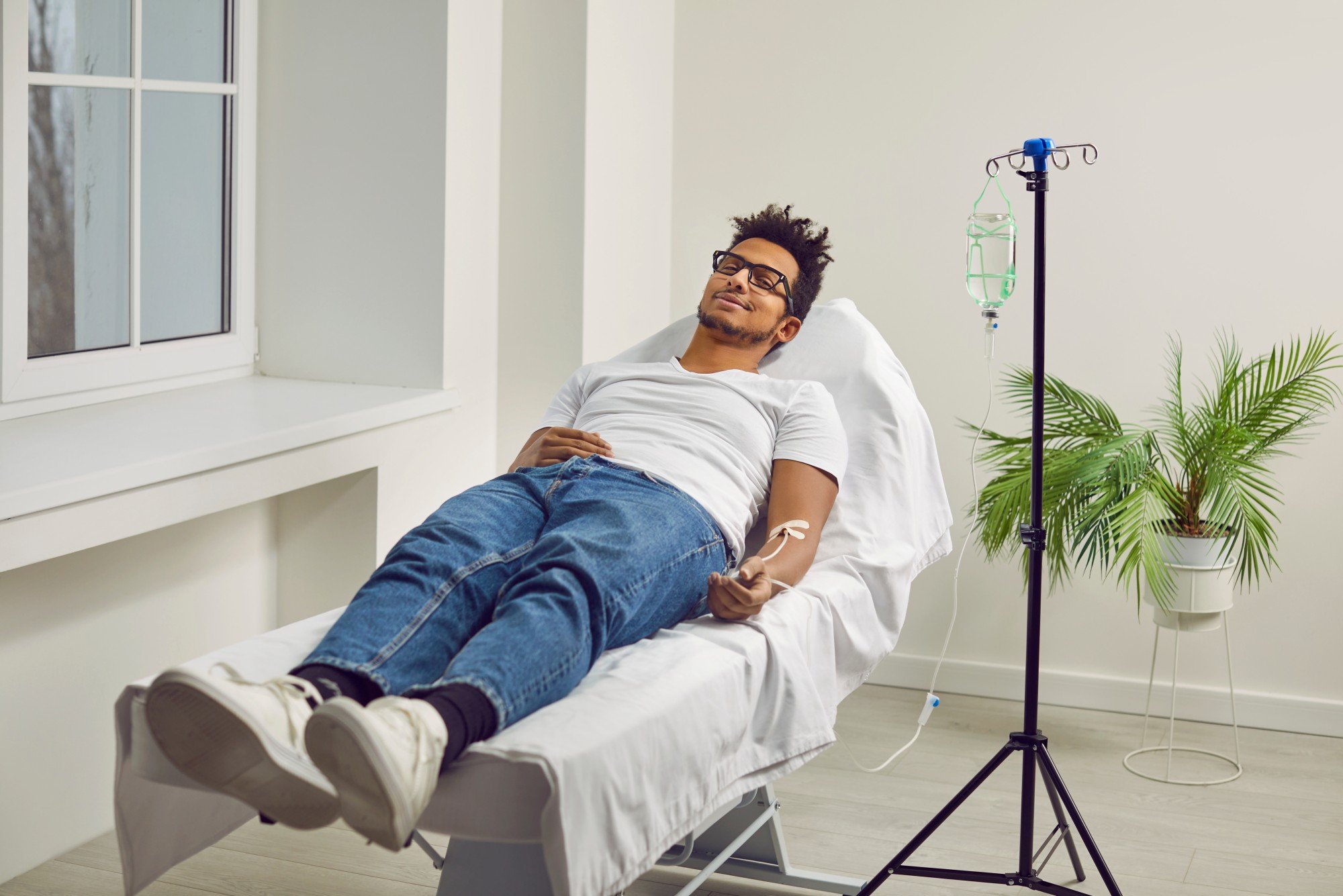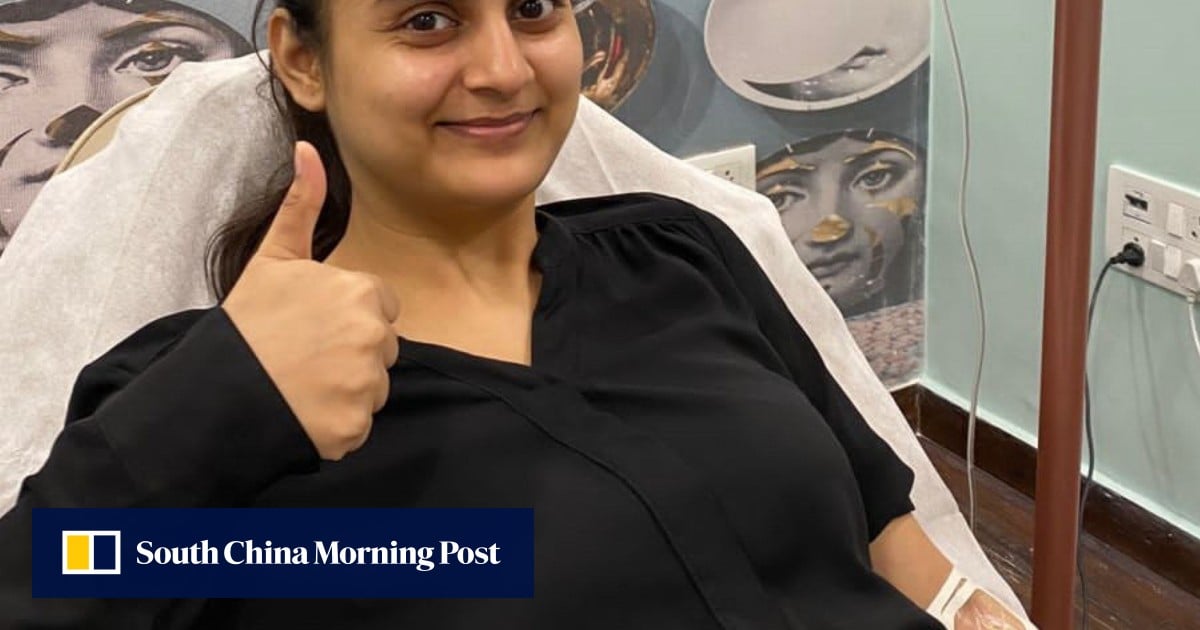Some wellness therapists claim IV vitamin therapy boosts the body’s immunity by replenishing it with essential nutrients.
“The goal of IV treatment is to supply substances that the body has become deficient in due to some medical conditions,” says Dr Kiran Sethi, director of Isya Aesthetics in New Delhi, India, which offers a range of IV therapies.
Sethi adds that the therapy mostly benefits people who have poor dietary habits, are vitamin deficient, travel a lot, or have suffered significant oxidative damage due to lifestyle habits or the environment.
The IV treatment is especially popular among the 30- to 49-year-old age group, in both men and women, she says.
Which vitamins and supplements to take – can DNA tests help you decide?
Which vitamins and supplements to take – can DNA tests help you decide?
During the treatment, a liquid mixture of vitamins and minerals flows into a vein through a small tube, allowing the nutrients to enter directly into the bloodstream.
This allows the body’s cells to more readily access them than if they were introduced through eating food or taking supplements, Sethi says.
Delhi-based nutritionist Iqra Parveen has an IV treatment known as the “Magic Markle” at Sethi’s clinic.
Named after Meghan, Duchess of Sussex, the clinic’s website says it offers “energy, glow, performance, hydration, immunity and more”. It is described as “an energising mix of vitamins and minerals” that “will leave you ready to take on anything the day has in store and will leave you feeling refreshed for days to weeks”.
“I’ve been taking this drip for a few months and it helps me feel rejuvenated and is an instant mood booster,” Parveen says.

Traditionally, people who aren’t able to eat enough food due to illness, or who have gut or other issues that interfere with nutrient absorption, have benefited from IV therapy.

The infusions generally take anywhere from 20 minutes to an hour and are done under the observation of a licensed medical professional. In India, the cost per infusion varies from US$100 to US$300.
However, experts recommend that clients consult medical practitioners before receiving treatment to offset potential risks.
“Those being administered these drips should be aware of any possible allergies, and make sure doctors are equipped to handle emergencies should it trigger an intense reaction,” advised a consultant at Skin Décor, a wellness clinic in New Delhi that offers an IV drip bar.
There is also a risk of infection through the insertion of the catheter for the IV line.
Many people who are launching [IV drip] businesses may be ill-informed and not qualified to administer this service, which can do more harm than good
Though they are trending, IV vitamin drips are not a new phenomenon. They were first developed and administered by Dr John Myers of the Johns Hopkins Hospital in Baltimore, in the US state of Maryland, in the 1960s. His invention – the “Myers cocktail” – was a mixture of B12, B complex vitamins, vitamin C, calcium and magnesium.
Myers claimed the concoction helped regulate nerve and muscle function, boosted metabolism, prevented cell damage and deterioration, and gave an immunity boost.

Despite the increasing popularity of nutritional IV drips, however, health professionals fear that the unchecked growth of drip bars and their easy accessibility, as well as a lack of regulation in the nascent industry, may cause more harm than good.
A 2021 report in the journal Nutrition Today titled “Consumer Intravenous Vitamin Therapy: Wellness Boost or Toxicity Threat?” concludes: “There is insufficient evidence suggesting that IV vitamin therapy is more effective than eating food or taking dietary supplements to reduce the risks of vitamin and mineral deficiency or support immune health.”
It suggests: “IV vitamin therapy sold in the retail space is an expensive and overhyped alternative to oral intake of nutrients and fluids. Frequent use of IV vitamin therapy may cause critical nutrient imbalances, negative interactions with medications, and/or increased risk of infection.
“Routine IV vitamin therapy to people outside the hospital and clinic setting or for ‘wellness’ needs further investigation into the risks and benefits.”
7 lifestyle changes confirmed by science that help lower cancer risk
7 lifestyle changes confirmed by science that help lower cancer risk
General practitioner Dr Geetanjali Kochar in New Delhi agrees, saying that if you have a balanced diet, there’s “really no need for artificial aids like IV drips”.
“Many people who are launching such businesses may be ill-informed and not qualified to administer this service, which can do more harm than good,” she says.

